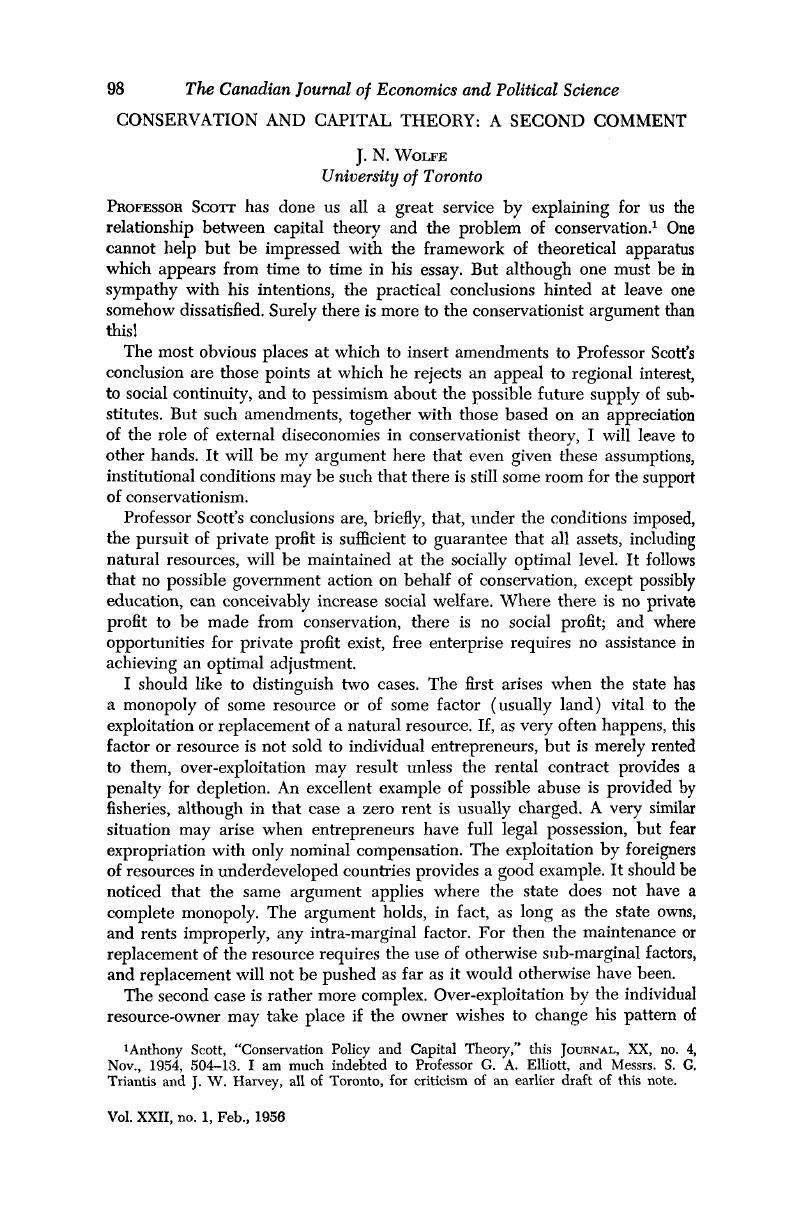No CrossRef data available.
Published online by Cambridge University Press: 07 November 2014

1 Scott, Anthony, “Conservation Policy and Capital Theory,” this Journal, XX, no. 4, 11, 1954, 504–13.Google Scholar I am much indebted to Professor G. A. Elliott, and Messrs. S. G. Triantis and J. W. Harvey, all of Toronto, for criticism of an earlier draft of this note.
2 Professor Scott has indeed admitted the possibility that imperfections of the capital market might provide an opportunity for useful government action. But he restricts himself to imperfections which show themselves in higher interest rates rather than capital rationing, and is led to conclude that government action should be restricted to increasing the perfection of the capital market. It appears, on the other hand, that capital rationing is a necessary rather than an artificial characteristic of the market for the provision of capital to small entrepreneurs, and the amelioration of its effects presumably requires more direct action.
3 External diseconomies of local depletion of resources may reinforce the necessity that conservation be undertaken on a large scale if at all.
4 These cases are not exhaustive. There remain other areas in which collective action is the only alternative to no action at all. It is important to notice, too, that Professor Scott's argument implicitly assumes (as does my own) that resources are indifferent between uses, and that changes in the distribution of income between living members of society are irrelevant. Those who reject these assumptions will find his conclusion unpalatable.